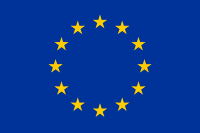Ipotesi e approfondimenti
Proponi un'ipotesi e condividi i tuoi risultati
Modifiche a "Something completely different, or more of the same? TikTok and the “democratization” of cultural content production"
Modalità di visualizzazione confronto:
Modalità visualizzazione HTML:
Titolo
- +{"en"=>"Something completely different, or more of the same? TikTok and the “democratization” of cultural content production"}
Corpo del testo
-
+["
- Context
- Social media and digital production tools have provided a big impulse to the possibility of a democratization\nof cultural content production. However, enhanced viability does not imply an actual capacity to tap into\nthe opportunity. Research on established social media such as Twitter, Facebook and Instagram show that\ncontent production, and especially the most popular contents, is mostly driven by a small elite of super-\nusers, and an additional but still small share of content creators.
- Hypothesis
- With this dataset, we wonder whether a more recent social media such as TikTok - whose design features are optimized to facilitate individual content production and to enhance visibility of content from unknown users - actually makes a difference in the production of digital cultural content.
- Collaboration
- Related dataset URL
- https://participate.indices-culture.eu/assemblies/indicesDatasets/f/163/proposals/206
- Related insights URL
- Indicators
- Evaluation
Autore della versione
Versione creata il
26/02/2023 12:23





